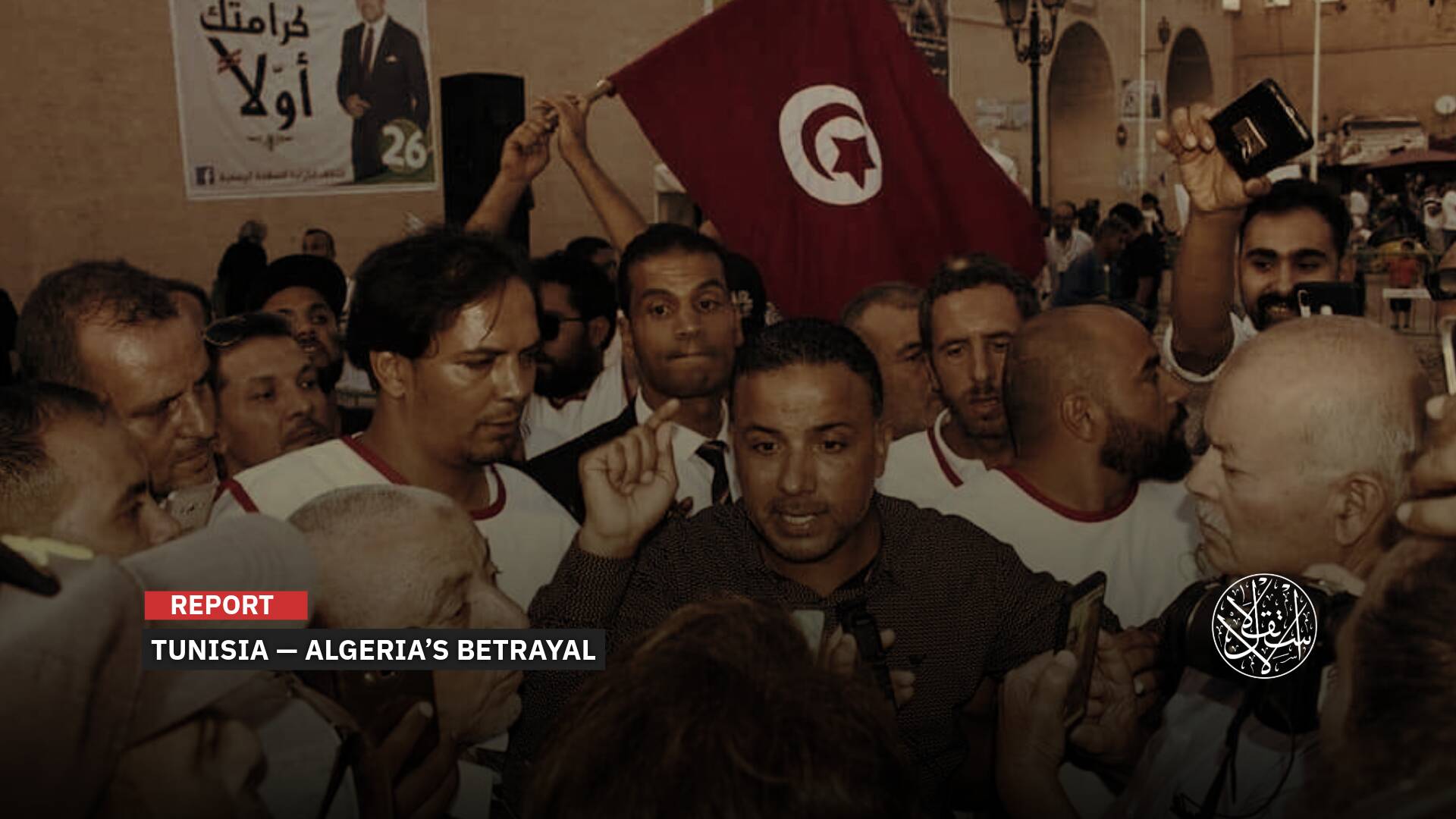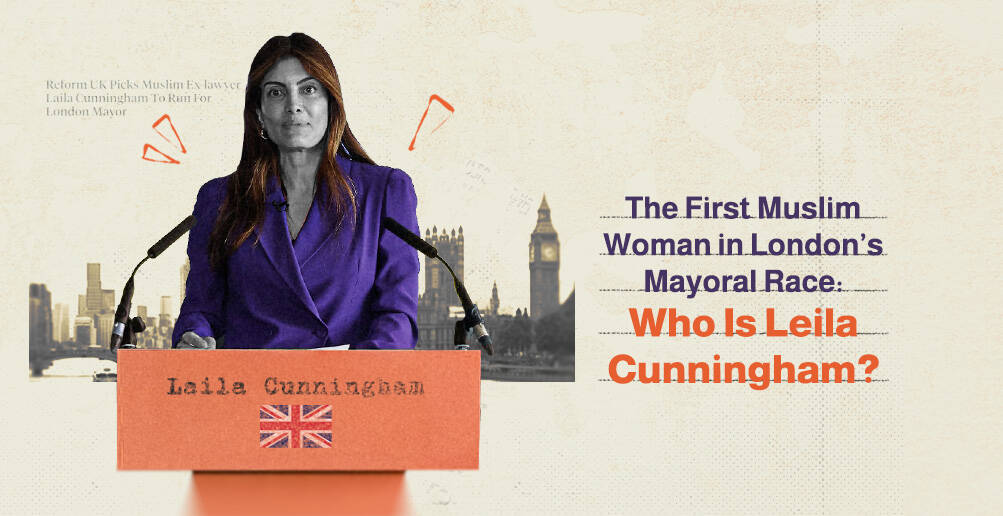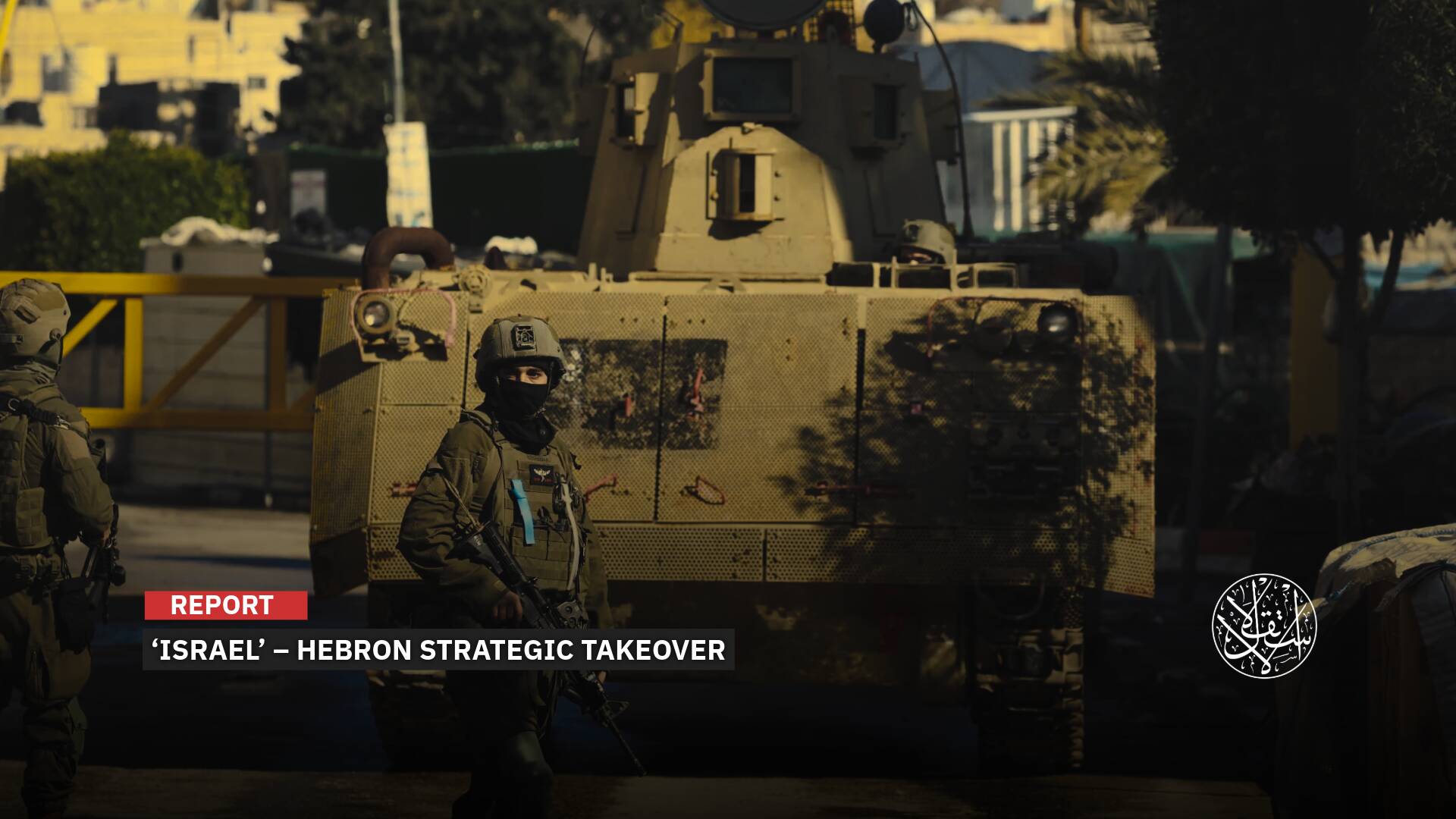Al-Aqsa Closure Over Iran: A Step Toward the Temple or a Move to Cement Jewish Sovereignty?

“Israel” imposed a complete shutdown on transportation in Occupied Jerusalem.
As “Israel” launched its assault on Iran, it also shut the gates of al-Aqsa Mosque—Islam’s first Qibla—barring Friday prayers on June 13, 2025, and keeping it entirely closed since.
Residents of Occupied Jerusalem were blocked from entering with each call to prayer, leaving the mosque’s courtyards eerily empty, echoing only with the voice of the muezzin (the person who proclaims the call to the daily prayer five times a day) and a handful of guards permitted to remain—while settlers were freely allowed access.
Many see this blatant violation of the mosque’s sanctity and the continued denial of worship as a calculated attempt to exploit the war as cover to impose full Zionist control over al-Aqsa and accelerate Judaization efforts.
Even before this escalation, settler groups tied to the Temple movement had intensified their raids, pushing for a new status quo that includes spatial and temporal division of the site, and attempting to introduce ritual sacrifices.
On June 2, 2025, three settlers tried to smuggle blood-dripping cuts of meat into the Dome of the Rock Mosque to use as sacrificial offerings, claiming it as the biblical site of the Temple—the so-called dwelling place of God’s spirit.
In their religious narrative, such offerings are the highest form of worship and a prelude to building the Third Temple.
For religious Zionists, performing these rituals at al-Aqsa is seen not only as symbolic groundwork but as a necessary spiritual step toward replacing the mosque with the Temple.

What Happened?
As soon as the Israeli strikes on Iran began on June 13, 2025—and Tehran announced its retaliation—Israeli Occupation police stormed al-Aqsa Mosque's courtyards and sealed its gates, citing “security concerns” amid the war.
Israeli forces imposed a full lockdown on transportation across Occupied Jerusalem, set up heavy military checkpoints around the Old City, and blocked all access routes leading to al-Aqsa, shutting every entrance to the mosque.
What made it even more striking was that it was a Friday—the first time in years that Israeli authorities prevented worshippers from performing Friday prayers at al-Aqsa, using Iran’s response as justification.
According to the Palestinian News Agency WAFA, Israeli Occupation forces forced worshipers out of the mosque after dawn prayer and barred them from staying. They then locked all the gates, cancelling the Friday service.
Eyewitnesses from Occupied Jerusalem said Israeli police stormed the mosque compound right after Fajr prayer, forced everyone out, and sealed the site entirely. It was the first time al-Aqsa had been emptied and shut down like this since the COVID-19 pandemic in 2020.
That day, Friday prayers and the sermon were held in an almost empty mosque—delivered only in front of a few guards. The Jerusalem Islamic Waqf broadcast the sermon live so Muslims could still hear it.
Locals in Occupied Jerusalem reacted bitterly, saying: “What’s a Friday sermon without worshippers? The Israeli Occupation emptied al-Aqsa and closed it in the morning—only guards remained.”
The Ministry of Awqaf and Religious Affairs condemned the move, saying “Israel” didn’t just close al-Aqsa but also shut down Hebron’s Ibrahimi Mosque, barring worshipers from both sacred sites—another violation in a long list of attacks on Muslim holy places.
The closure of al-Aqsa Mosque came as the Israeli army imposed a full lockdown on the West Bank, just hours after its large-scale assault on Iran.
At the same time, Israeli Occupation forces allowed settlers to perform religious rituals near the mosque, while intensifying daily raids into towns and neighborhoods around Occupied Jerusalem, backed by heavy military presence at checkpoints, gates, and along the separation wall.

Imposing Sovereignty
While rockets launched by Iran, Hezbollah, or Palestinian resistance groups typically fly over Occupied Jerusalem without targeting al-Aqsa Mosque, “Israel” has used the recent war as a pretext to shut it down and bar worshipers—despite the mosque never being a military target.
Observers say this is not a security measure, but a strategic step by “Israel” to impose a new reality at al-Aqsa, especially during times of war and Jewish religious holidays.
Dr. Abdallah Marouf, professor of Jerusalem Studies and former head of public relations at al-Aqsa Mosque, told Al-Estiklal that Israeli Occupation’s violations reflect its intent to treat the mosque as sovereign Israeli territory.
“Israel is using the current war to further cement a new status quo—closing al-Aqsa as if it’s simply another location under full Israeli control,” he said.
“Israel has not imposed similar lockdowns even in West Bank areas it occupies militarily without claiming full sovereignty, unlike how it has acted with al-Aqsa.”
“That’s what makes this so dangerous,” Marouf added. “It means the Israeli Occupation no longer considers the mosque a special or disputed area—it treats it as if it were Tel Aviv.”
“What we’re witnessing is Israel treating al-Aqsa as an integral part of its state, and this sends a deeply alarming message to the Muslim world.”
Marouf warned that in the coming period, “Israel” may attempt more steps to solidify full sovereignty over the mosque and deal with it as if Muslims have no rightful claim to it.
Researcher Ziad Ibhais echoed these concerns, saying the closure of al-Aqsa during Israeli Occupation’s assault on Iran wasn’t coincidental—it fulfilled a promise made by Prime Minister Benjamin Netanyahu to hardline religious Zionist leaders.
Just two weeks before the war began, Netanyahu addressed a gathering of prominent rabbis at the “Har HaRav yeshiva” in Occupied Jerusalem. There, he told them: “You’ll all enter the Temple Mount,” prompting the crowd to chant, “The Temple will be built, and Zion will be filled.”
In the same speech—attended by far-right ministers Itamar Ben-Gvir and Bezalel Smotrich—Netanyahu linked the ongoing “end-times war” to the rebuilding of the Temple, signaling ambitions to assert full dominance over al-Aqsa.
According to Ibhais, the storming of al-Aqsa by Israeli Occupation police at dawn on June 13, and the continued closure afterward, are part of a broader plan to isolate the mosque and establish uncontested Zionist sovereignty over it.
Ongoing Judaization
Before al-Aqsa Mosque was officially closed, Israeli forces and settlers had already intensified their incursions and religious rituals inside its compound—often blocking Muslim worshipers from entering during Jewish prayer times.
Although Jewish prayer at the mosque had been prohibited since 1967, it has increasingly become a protected practice under the watch of Israeli Occupation police in recent years.
Extremist groups such as “Returning to the Temple Mount” and “Temple Priests” escalated their open calls to conduct sacrificial rituals inside al-Aqsa, blatantly disregarding its religious sanctity for Muslims.
These groups have circulated images and mock displays of animal sacrifices inside the mosque compound—particularly in the area of the Dome of the Chain, east of the Dome of the Rock—as part of their annual preparations for what they call the “Passover Offering.”
One widely shared image shows a model altar, ritual flames, and a lamb ready for slaughter—an explicit reenactment of the biblical “Temple” narrative.
The Union of Temple Organizations even included the image of the lamb offering in its digital invitation, directly inciting the performance of sacrificial rites within al-Aqsa Mosque itself.
Accelerated Judaization Inside al-Aqsa
Extremist Jewish groups continue pushing to impose a new reality at al-Aqsa Mosque by repeatedly attempting to perform animal sacrifice rituals—an effort aimed at erasing its Islamic identity and replacing it with Torah-based practices.
Israeli police have enabled these incursions by restricting the movement of al-Aqsa’s guards, barring them from approaching the settlers, and cracking down on Muslim worshipers. Hundreds of Palestinians, including imams and preachers, have been arrested or banned from entering the mosque.
Researcher Ziad Ibhais revealed a troubling development: between 2008 and 2025, Israeli Occupation’s slow-motion Judaization plan succeeded in doubling the hours settlers are allowed to storm the mosque—gradually carving out “time-based” divisions between Jewish and Muslim access.
He explained that in 2008, Israeli police first limited settler incursions to between 7:00–10:00 a.m., while restricting Muslim access during that time. Today, settlers enjoy two full windows: 7:00–11:30 a.m. and 1:30–3:00 p.m., a slow but deliberate expansion.
Even this isn’t enough for Temple groups. Ibhais said their current demands fall under two goals: either to split access equally between Jews and Muslims, or to allow unrestricted incursions at all hours—effectively dividing the mosque spatially as well, by dedicating the eastern courtyard for Jewish rituals.
During Passover in April 2025, hundreds of settlers stormed al-Aqsa from the Moroccan Gate under heavy police protection. They performed Talmudic rituals, especially near the Dome of the Rock—which they openly claim as the intended site of their “Third Temple.”
The settlers held provocative tours across the courtyards, chanting religious hymns, singing, and clapping, while Israeli forces simultaneously tightened security around the Old City and the mosque.
Dozens of metal barricades were set up throughout the streets, and Palestinians were routinely stopped, searched, and denied access to their own mosque—part of an ongoing attempt to establish dominance over one of Islam’s holiest sites.
Sources
- After the Attack on Iran, Israel Evacuates Al-Aqsa and Closes the West Bank [Arabic]
- The occupation forces close Al-Aqsa Mosque to worshippers for the third consecutive day
- Israel closes Al-Aqsa Mosque to worshippers until further notice
- UPDATE: Israeli forces seal Al-Aqsa mosque gates amid full closure imposed on West Bank, Ministry of Awqaf condemns











